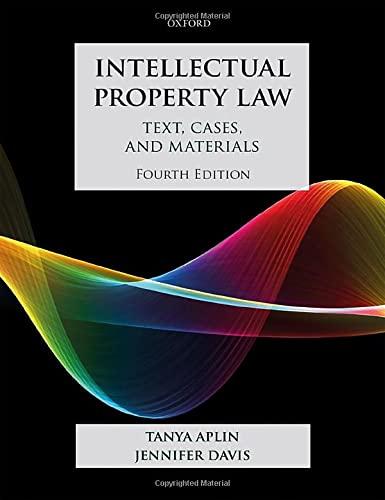Question
Question: Please paraphrase the paragraphs below. Please do Not summarize. Appellant challenged a judgment from the Court of Appeals, Fourteenth Supreme Judicial District of Texas,
Question: Please paraphrase the paragraphs below. Please do Not summarize.
Appellant challenged a judgment from the Court of Appeals, Fourteenth Supreme Judicial District of Texas, Fort Bend County, convicting him of theft because theft was not a lesser-included offense of robbery and there was insufficient evidence to prove that appellant was the robber. Appellant was indicted for robbery and a jury convicted him of theft. Appellant challenged his conviction on grounds that the trial court erred by instructing the jury on the offense of theft from a person since it was not a lesser-included offense of robbery, as theft from a person required an additional element of taking from the actual person of the victim, which was not an element of robbery. Appellant also challenged his conviction on grounds that the evidence was insufficient to prove that appellant was the only one in the store and was the perpetrator of the crime. The victim and the store manager identified appellant as the perpetrator. The court affirmed the conviction, holding a completed theft from a person was a lesser-included offense of robbery, and the identification evidence was sufficient to prove that appellant was the robber. Appellant's conviction for theft on his indictment for robbery was affirmed because a completed theft from a person was a lesser-included offense of robbery, and the identification evidence was sufficient to prove that appellant was the robber.
Defendants, who were police officers, appealed judgments from the Supreme Court of New Jersey, which sustained their convictions for abuse of public office, over defendants' objections that the incriminating statements used to convict them were coerced. Upon the direction of the state supreme court, allegations that police officers were fixing traffic tickets were investigated by the State. Pursuant to the forfeiture-of-office statute, N.J. Rev. Stat. 2A: 81-17.1 (Supp. 1965), each defendant was warned before questioning that what was said could be used against him and told that if he refused to answer on the grounds that it would incriminate him, he would be discharged. Defendants answered the questions, and their responses were used to convict them on criminal charges. Defendants appealed, and their convictions were reversed. The Court held that 2A: 81-17.1 was relevant only regarding the involuntariness of the statements. The Court reviewed the record and concluded that defendants' statements had been coerced and made under duress because defendants had to choose between self-incrimination or job forfeiture. The State could not threaten to discharge defendants to secure incriminating evidence against them. Defendants were entitled to the protection of U.S. Const. amends. V and XIV, and any incriminating statements obtained pursuant to N.J. Rev. Stat. 2A: 81-17.1 could not be used in subsequent criminal proceedings. The Court reversed defendants' convictions on the grounds that their statements were coerced. The State could not threaten to discharge defendants in order to obtain incriminating evidence against them. The Court ruled that everyone was afforded the protections under the Fifth and Fourteenth Amendments. Any incriminating statements elicited under the forfeiture-of-office statute were barred from use in any subsequent criminal proceeding.
Step by Step Solution
There are 3 Steps involved in it
Step: 1

Get Instant Access to Expert-Tailored Solutions
See step-by-step solutions with expert insights and AI powered tools for academic success
Step: 2

Step: 3

Ace Your Homework with AI
Get the answers you need in no time with our AI-driven, step-by-step assistance
Get Started


